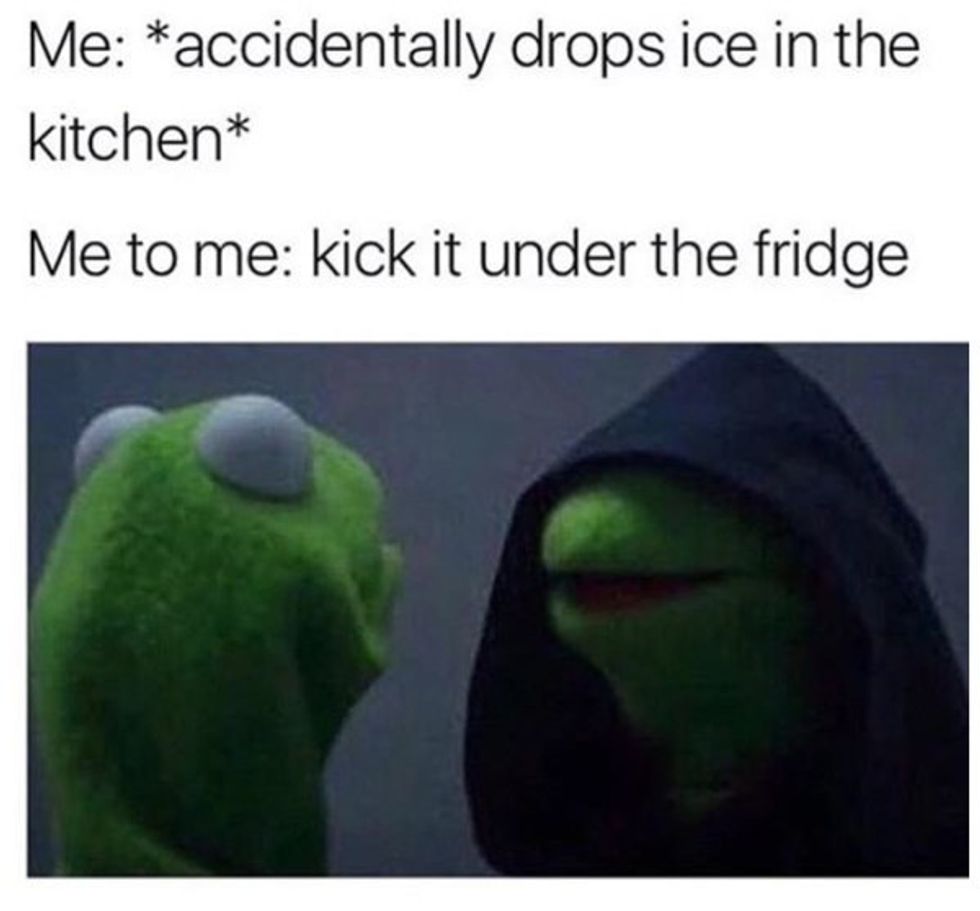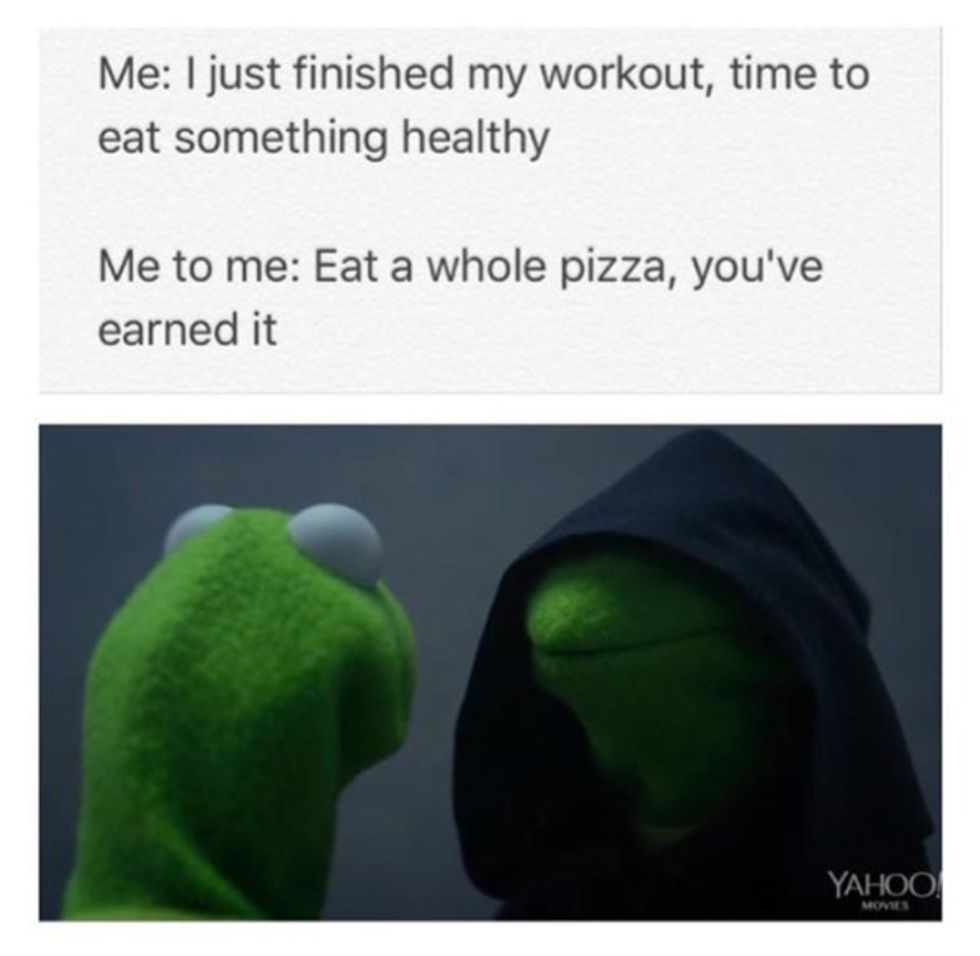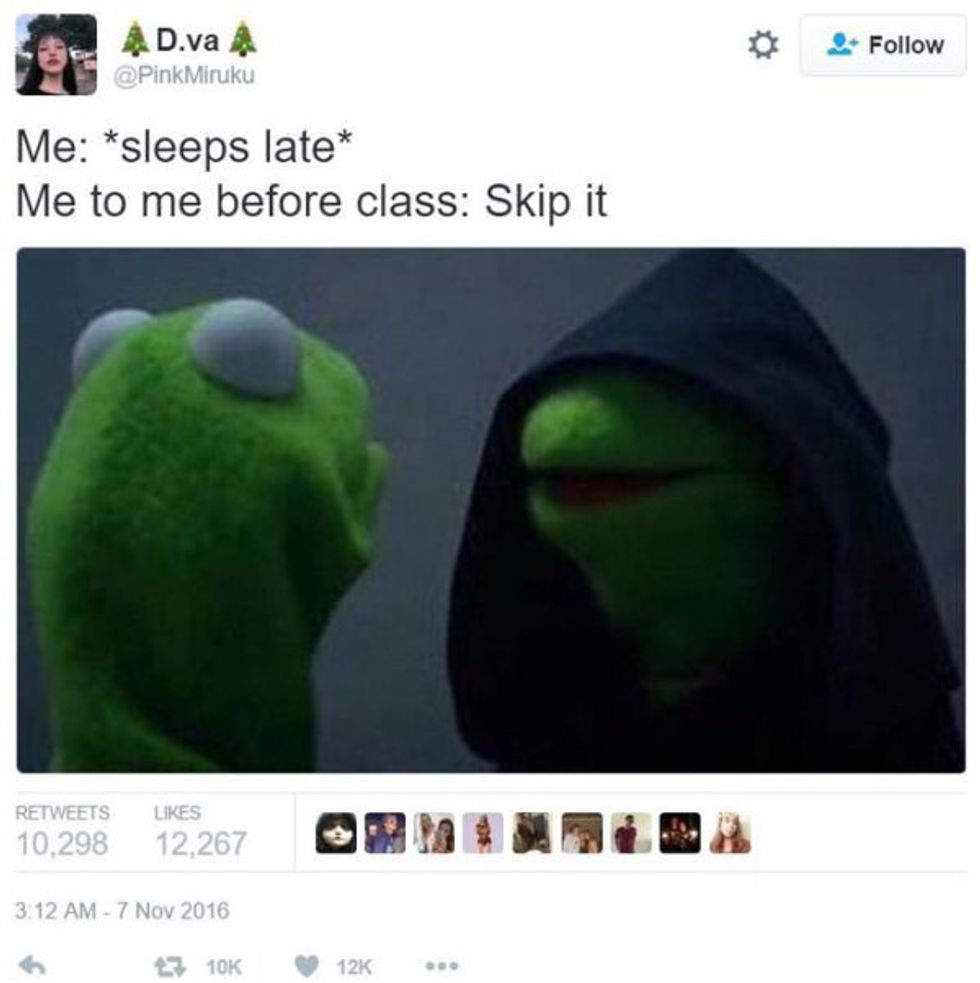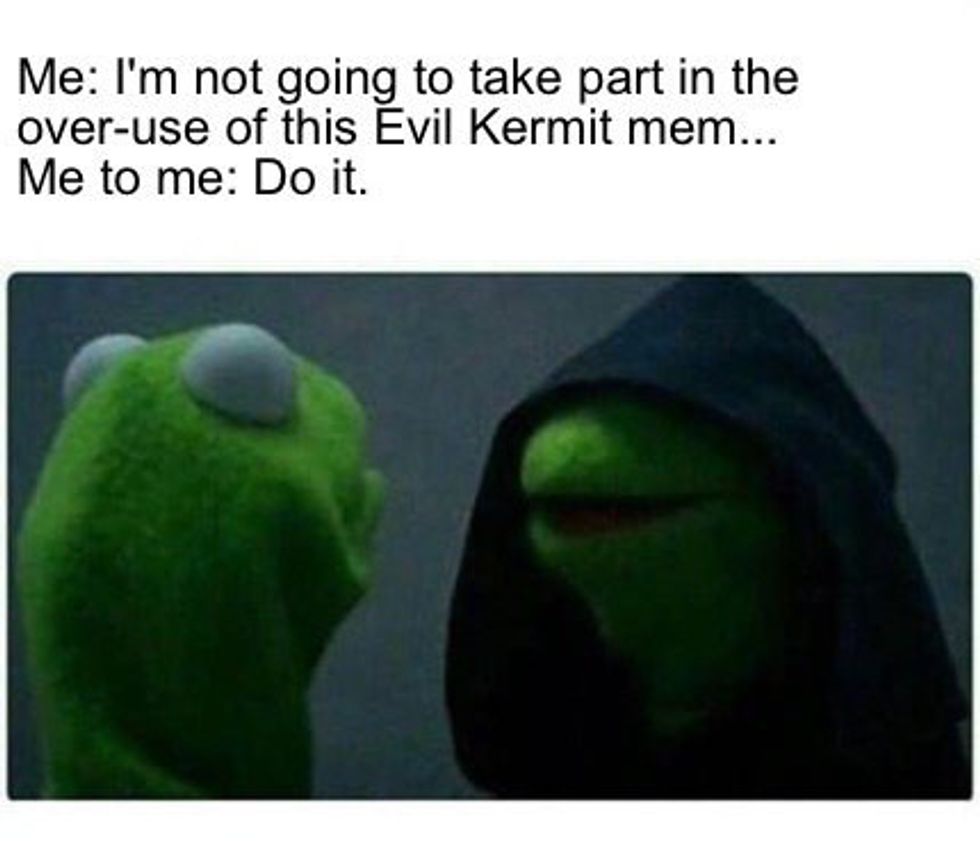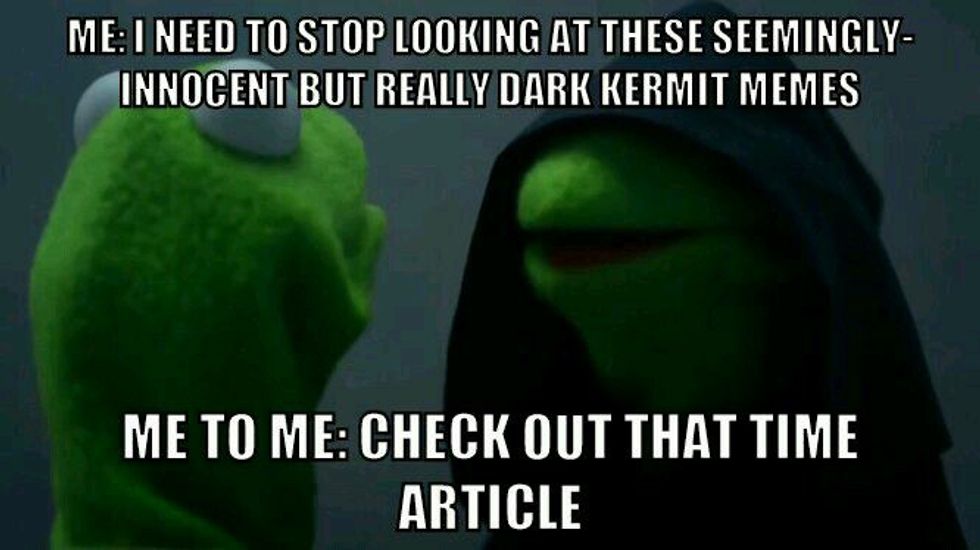Over the past three weeks, the internet has been thoroughly engaged in the tantalizingly cynical yet hilarious evil Kermit the Frog meme. As a fan, I completely understand why Kermit is all the — it's funny and honest and completely customizable. Since its origins on November 6 from one clever Twitter fan, the self-indulgent Darth Sith version of Kermit has taken off and embraced every awkward little nuance most of us come across in our daily lives — reflecting our struggles with the darker thoughts that float around in our subconscious. While nearly every version I've come across has been highly relatable — including careless Kermit and self-destructive Kermit — I've come to question how the circulation of these thoughts has changed our perspectives of ourselves and those around us. Although Kermit, among many other viral memes, serves to unite us bumbling fools and allow us to feel less inadequate, he may also become an excuse to succumb to mediocrity — making it easier for the unacceptable to become acceptable and even popular.
Kelly Clarkson once said, "Everybody has a dark side." While it is true that even the most innocent person probably has their own little nuances, what remains questionable is how much of those quirks they show to the public. Yes, traditionally we've been taught to embrace our dark sides rather than let them eat us from the inside out, but have we gone too far? The latest and hottest TV shows to hit Netflix all showcase the darker side of things — "Black Mirror," "Walking Dead," "Stranger Things" and the countless other crime shows like "American Crime," not to mention many of Stephan King's classic psychological thrillers. Psychologist Carl Jung has even dubbed this dark side our "Shadow," arguing it harbors some of our best-kept internal emotions as well as — surprisingly — creativity. We naturally have an affinity for things outside of our state of "normal" as we seek thrills, excitement and in a sense — adventure. Yet when perusing the rather disturbing crevices of our minds, we unknowingly start to amplify the signals. One Kermit meme one day could just be the gateway meme for an even darker version.
Of course, I'm getting ahead of myself. To assume that one meme, although viral, can produce such an exaggerated effect on the masses sounds extremely ridiculous — especially since we know what happens when we assume. Yet, as my theory goes, which is centered around the same central theory behind why little kids should have limited access to violent television programs and video games, Kermit is an all-access pass to post literally anything that comes to one's mind. As much as the internet is already a dumping ground for creepy weird stuff, we are becoming devout followers of a frog, originally from — get this — a kid's show, that summons us to the dark side. Before I saw half of these memes, I honestly largely kept my creepy weird thoughts to myself. But now, considering there is not only an audience but also a demand for this reassurance of your dark thoughts, I literally find myself using Kermit as a legitimate excuse to skip class. If everyone's doing it, what's the harm in one more person with slightly cynical intentions? When my confession is out there for the world to know, I don't feel like I'm hiding something. Instead, we are fostering a community of mediocre citizens in which most feel no need to at least pretend like they wouldn't skip class. Had I not seen that picture, I probably would've felt much more alone in this thought. Thus, proliferation perpetuates dark thoughts. After all, what's the harm in one more meme? One more confession?
Now that we've arrived at the core theory, I invite you to survey what kind of subliminal messages Kermit may be sending you. Of course, someone with time and enough paranoia can point out "signs" in everything — no I don't follow conspiracy theories — but what's ironically funny and dark at the same time is how much leverage internet rhetoric and visuals can have on our day-to-day selves. I'm not shaming you into a sad, Kermit-less life, but rather I'm encouraging you to ask yourself — you to you — how much your daily scroll through Facebook or Instagram can affect your perception of yourself and those around you.
If you're anything like me, you'll probably want to check out this Time article with a compilation of some of the best of Kermit's dark side.




